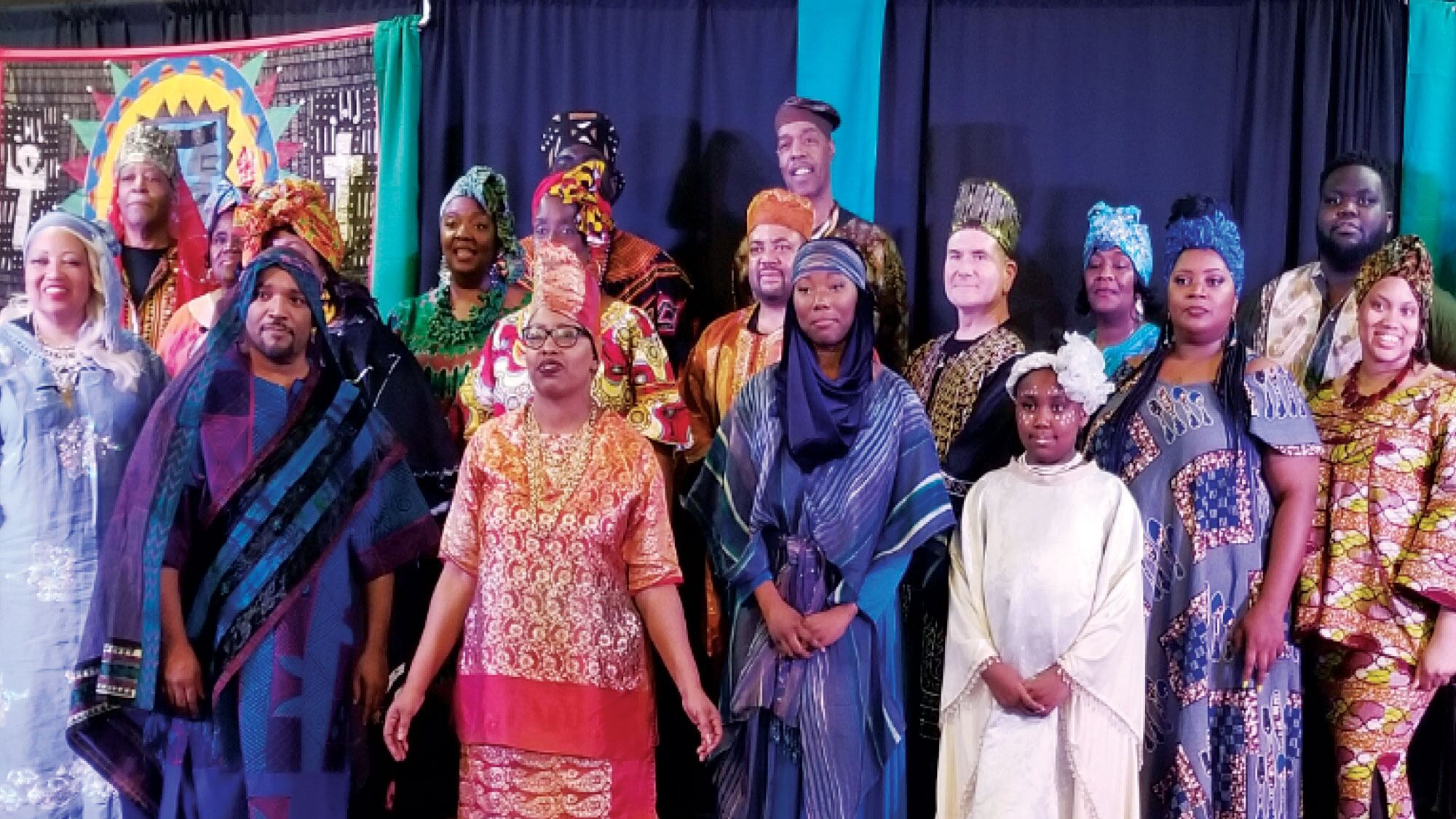Impassioned, rousing and filled with sublime music, PassinArt's production of Langston Hughes' gospel song-play Black Nativity is holiday theater of the highest order. It's also a rare performance in which the audience isn't invited to sit back and relax; instead, you're encouraged to sing along and dance in the aisles. One does not, in other words, watch Black Nativity—you invest in it, joining your spirit with the performers onstage.
Directed by Jerry Foster, Black Nativity retells the story of the birth, crucifixion and ascension of Jesus Christ. While the production is a testament to faith, it reverberates with palpable joy that has the power to move anyone, regardless of religious affiliation or lack thereof. No need to be a believer to appreciate the play—you just need to believe in theater's power to thrill, move and uplift.
PassinArt, the longest-running black theater company in Portland, has been producing Black Nativity for many years. This time, the production has moved to Bethel African Methodist Episcopal Church on Northeast 8th Avenue, but the story remains the same. On a night marked by both hope and desperation, Mary (Lydia Fleming) and Joseph (Kenneth Dembo) search for a safe haven for the birth of their son, who is hailed as humanity's savior. A chorus of gifted singers tells his story through gospel, with Mike Dean playing piano and Walter Dean on drums.
Music, in other words, matters more than narrative in Black Nativity—all of the production's grandest moments are sung. Highlights include a reverent and raucous version of "Silent Night," a propulsive, staccato-heavy rendition of "Rise Up, Shepherd, and Follow," and "Sweet Little Jesus Boy," which is performed by Onnie Allen and Michaela Dean, who, in a truly heavenly moment, emerges between the pews dressed in a white robe, her voice ringing out as clearly and powerfully as a clock-tower bell.
That doesn't mean Black Nativity is more of a concert than a play—the production's imagery is distinctly theatrical. Wanda Walden's costumes form a rainbow of colors, while jarring lighting choices add dramatic flair. During one stretch of the performance, the church's lights shift between crimson, blue and emerald hues, creating a thrilling visual progression that mirrors the way the singers seem to move effortlessly from one song to another.
There are times when it is satisfying simply to bask in the prodigious skill and verve of Black Nativity's performers. Yet one of the show's most touching qualities is its refusal to draw a line between artist and audience. Moments when you have the opportunity to participate—stand, clap, sing or do all three—are exhilarating, jolting you out of the passive state that theater sometimes demands. Black Nativity's determination to rouse you makes it a truly generous work of art, something that is underscored by the fact that after the show, the performers don't retreat backstage. They stick around to shake hands and wish audience members a "Merry Christmas."
There are many reasons we are drawn to the theater. We go to be entertained, to laugh, to be enlightened, to weep. Yet performances that leave you feeling happier than you were before are hard to find. That's why Black Nativity is such a balm. As the music rushes over and around you, everything that exists beyond the production—weariness, stress, fear—seems to fade away. When the last song is sung, you walk out feeling stronger and more hopeful, borne aloft by each precious note.
SEE IT: Black Nativity plays at Bethel AME Church, 5828 NE 8th Ave., passinart.org. 7:30 pm Friday-Saturday and 3 pm Sunday, Dec. 14-16. $10-$25.
